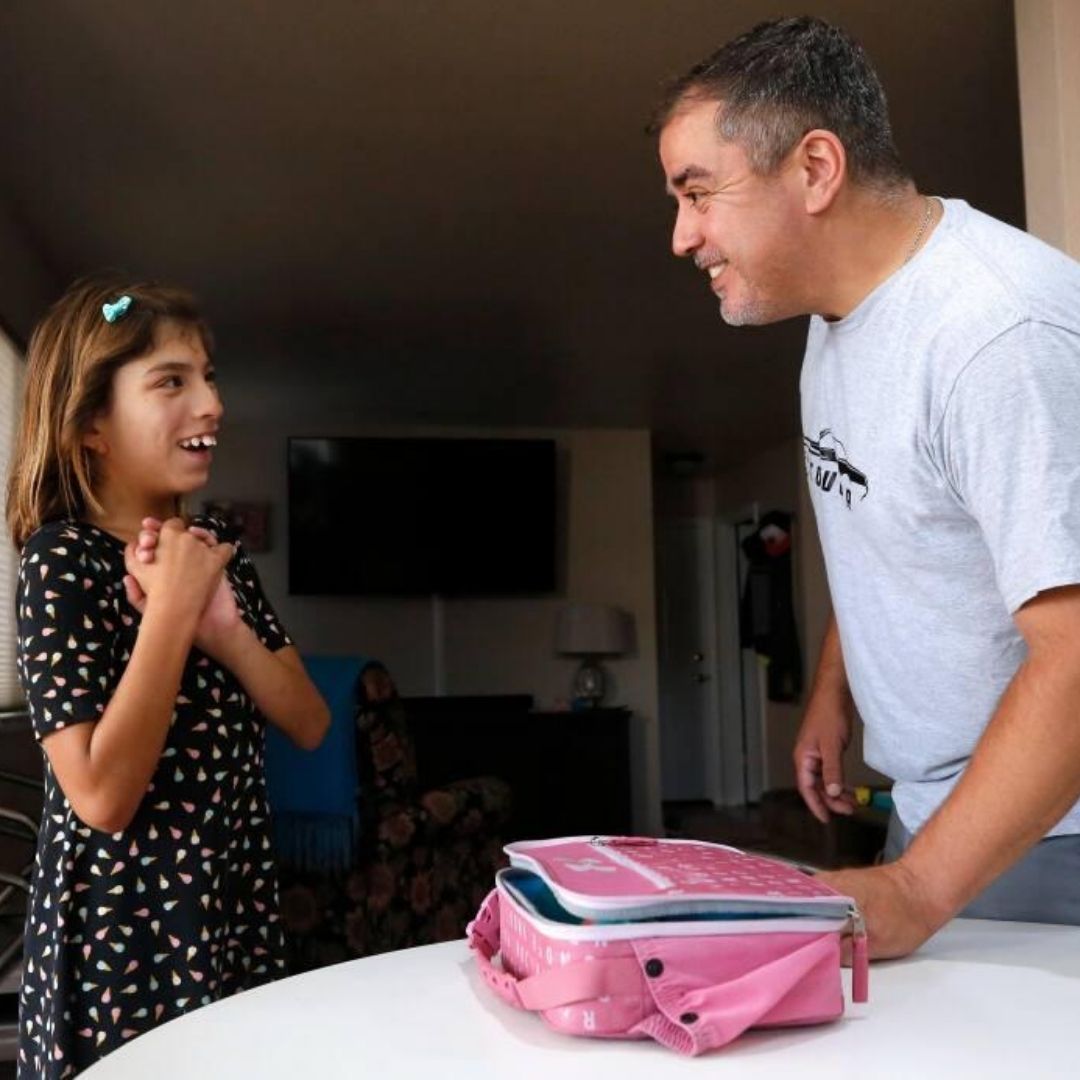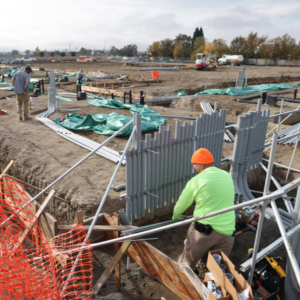
Rebekah Rocha is at her Windsor home doing two — or three — things at once. She’s on the phone and answering the door, all while talking to her daughter, Gigi, who is in the bathroom.
Gigi is nearly 12, the middle of Rocha and her husband Jose’s three children. Gigi was born with 5p- Syndrome, a rare genetic disorder that causes delays in cognition and gross and fine motor skills, as well as in speech and language.
She had been learning to use the toilet but regressed since the coronavirus pandemic shuttered schools in March. Gigi is nonverbal and Rocha describes her as “severely handicapped,” and yet she thrived in her fifth grade class at Brooks Elementary School last year. There, she received special education support but was also integrated into a general education classroom.
Without school — without the routine, regular therapy sessions and daily socialization with peers — Gigi has struggled. And that has meant Rocha has struggled, too. A painstakingly crafted schedule for two working parents with three kids — one with special needs — started to show cracks early in the shelter in place last spring when all three kids could no longer attend school and Rocha was forced to work from home.
On this day, Rocha, principal at Cesar Chavez Language Academy in Santa Rosa, pulls the phone away from her face to give the just-arrived babysitter an update on Gigi’s progress in potty training. Rocha tells the sitter that she has been rewarding her daughter’s success on that front with small bathtub toys. She returns to the phone.
Continue Reading on Press Democrat

